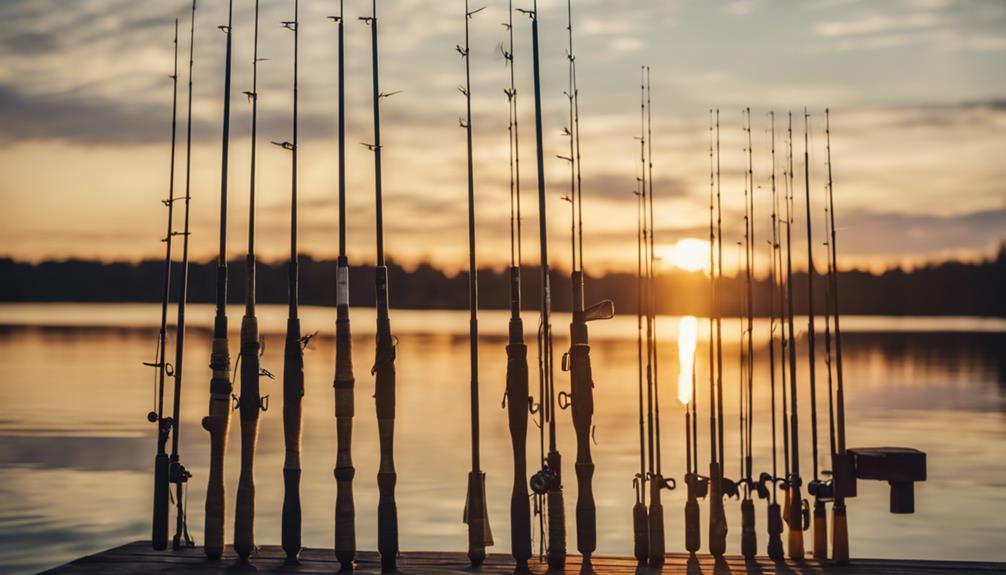Fishing is one of the most beloved outdoor activities, allowing enthusiasts to connect with nature and enjoy the thrill of the catch. However, before you cast your line, it’s essential to understand how to get a fishing licence. This guide will walk you through the process, requirements, and tips for obtaining your fishing licence efficiently.
Understanding the Importance of a Fishing Licence
A fishing licence is more than just a piece of paper; it’s a legal requirement in many countries and regions. Obtaining a fishing licence ensures that you are complying with local fishing regulations, which are designed to protect fish populations and aquatic ecosystems. Additionally, having a valid fishing licence helps fund conservation efforts and recreational facilities, contributing to the overall health of aquatic environments. When you understand how to get a fishing licence, you not only adhere to the law but also play a part in sustainable fishing practices.
Types of Fishing Licences Available
When exploring how to get a fishing licence, it’s important to note that there are various types of fishing licences available. These can range from annual licences to short-term permits designed for visitors or casual anglers. Many regions offer specific licences for freshwater and saltwater fishing, as well as special permits for certain species or fishing methods. Understanding the types of licences available in your area will help you choose the right one for your fishing activities. Additionally, some states may offer discounted rates for senior citizens, veterans, or children, making it more accessible for everyone to enjoy fishing.
Eligibility Requirements for Obtaining a Fishing Licence
Before you can secure a fishing licence, you need to meet certain eligibility requirements. Generally, these requirements include being a certain age, such as a minimum of 16 years old, although this can vary by location. In many cases, minors may fish under the supervision of a licensed adult. Additionally, some regions may require you to pass a fishing education course before obtaining your licence, particularly if you’re a first-time angler. Checking the specific eligibility criteria in your state or country is crucial when learning how to get a fishing licence.
Steps to Get a Fishing Licence
Now that you understand the importance and types of fishing licences, let’s dive into the steps involved in obtaining one. The process typically begins with researching the appropriate agency in your region, such as the Department of Fish and Wildlife or a similar organization. Most agencies offer online applications, making it convenient to apply from home. You’ll need to provide personal information, such as your name, address, and date of birth. Additionally, be prepared to pay a fee, which varies depending on the type of licence you are applying for. After submitting your application and payment, you should receive confirmation of your fishing licence, often via email or postal mail.
Where to Apply for Your Fishing Licence
When considering how to get a fishing licence, it’s important to know where you can apply. Most states offer multiple avenues for obtaining a fishing licence, including online applications, in-person visits to designated offices, and even at certain retail locations, such as sporting goods stores. Applying online is typically the most convenient option, allowing you to complete the process from home. However, if you prefer face-to-face interactions or have questions, visiting a local office can provide you with valuable information and assistance. Be sure to check the official website of your regional fish and wildlife agency for specific details about where to apply.
Cost of a Fishing Licence: What to Expect
The cost of a fishing licence can vary widely depending on several factors, including your location, the type of licence you choose, and whether you’re a resident or non-resident. On average, an annual fishing licence can range from $15 to $50, while short-term licences may cost anywhere from $5 to $20. Additionally, some states offer special packages or discounts for families or groups. Understanding the potential costs involved is essential when planning your fishing trips. Always check your local regulations for the most accurate pricing information and consider any additional fees that may apply.
Renewing Your Fishing Licence: Tips and Guidelines
Once you’ve obtained your fishing licence, it’s crucial to stay informed about renewal dates and requirements. Fishing licences are typically valid for one year, although some regions may offer multi-year options. To avoid any interruptions in your fishing activities, mark your calendar for the renewal date and initiate the process well in advance. Most fishing agencies allow for easy online renewals, similar to the initial application process. If you’ve moved or changed your personal information, make sure to update your details during the renewal process to ensure that you remain compliant with local regulations.
Best Practices for Responsible Fishing with a Licence
Having a fishing licence is just the beginning of responsible fishing practices. As a licensed angler, it’s your responsibility to follow all local fishing regulations, including size and bag limits for different species. Educating yourself about the environment and fish populations will help you fish sustainably and ethically. Additionally, always practice catch and release when necessary, and be mindful of the impact of your fishing methods on the ecosystem. By adhering to these best practices, you can enjoy fishing while preserving the natural beauty and health of our waterways for future generations.
Conclusion
Getting a fishing licence is a straightforward process that opens the door to countless outdoor adventures. By understanding the importance of a fishing licence, the types available, and the steps to acquire one, you can fully enjoy your fishing experiences. As you embark on your angling journey, remember to practice responsible fishing, follow local regulations, and renew your licence on time. With the right knowledge and preparation, you can make the most of your time on the water and contribute to the preservation of our precious aquatic ecosystems. So, gear up, get your fishing licence, and enjoy the thrill of the catch!
